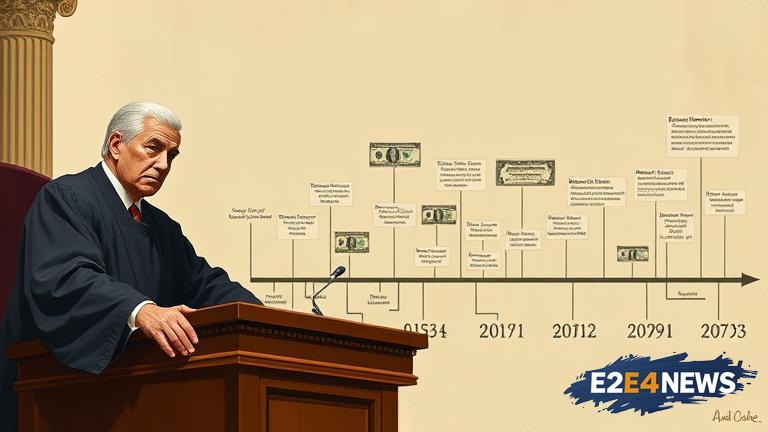The Supreme Court of India has begun hearing a presidential reference on the timelines for passing bills, a move that has significant implications for the country’s legislative process. The reference was made by the President of India, who sought the court’s opinion on the matter. The court’s decision is expected to have far-reaching consequences for the functioning of the Indian Parliament. The hearing has sparked a debate on the role of the judiciary in the legislative process, with some arguing that the court should not interfere in the workings of the Parliament. Others, however, believe that the court has a crucial role to play in ensuring that the legislative process is fair and transparent. The presidential reference was made in response to a controversy surrounding the passage of several bills in the Parliament. The opposition parties had alleged that the bills were passed without proper discussion and debate, and that the government had used its majority to push through the legislation. The Supreme Court’s hearing on the matter is being closely watched by politicians, lawyers, and civil society activists. The court’s decision is expected to set a precedent for the future, and could potentially lead to changes in the way that bills are passed in the Parliament. The hearing has also raised questions about the balance of power between the judiciary and the legislature. While the judiciary has the power to review and strike down laws, the legislature has the power to make laws. The Supreme Court’s decision on the presidential reference will have to balance these competing powers. The court will also have to consider the implications of its decision on the functioning of the Parliament. The hearing has been ongoing for several days, with lawyers for both sides presenting their arguments. The court has heard arguments on the importance of proper discussion and debate in the legislative process, as well as the need for the government to ensure that all stakeholders are consulted before passing laws. The court has also been told that the passage of bills without proper discussion and debate can lead to unintended consequences, and that the judiciary has a crucial role to play in ensuring that the legislative process is fair and transparent. The Supreme Court’s decision on the presidential reference is expected to be delivered in the coming weeks. The decision will be closely watched by all stakeholders, and is expected to have significant implications for the functioning of the Indian Parliament. The court’s decision will also have implications for the balance of power between the judiciary and the legislature. The hearing has sparked a debate on the role of the judiciary in the legislative process, with some arguing that the court should not interfere in the workings of the Parliament. Others, however, believe that the court has a crucial role to play in ensuring that the legislative process is fair and transparent. The Supreme Court’s decision on the presidential reference will have to balance these competing powers. The court will also have to consider the implications of its decision on the functioning of the Parliament. The hearing has raised questions about the timelines for passing bills, and the need for proper discussion and debate in the legislative process. The court’s decision will have to consider these factors, and ensure that the legislative process is fair and transparent. The Supreme Court’s decision on the presidential reference is a significant development in the Indian legal landscape, and is expected to have far-reaching consequences for the functioning of the Indian Parliament.
